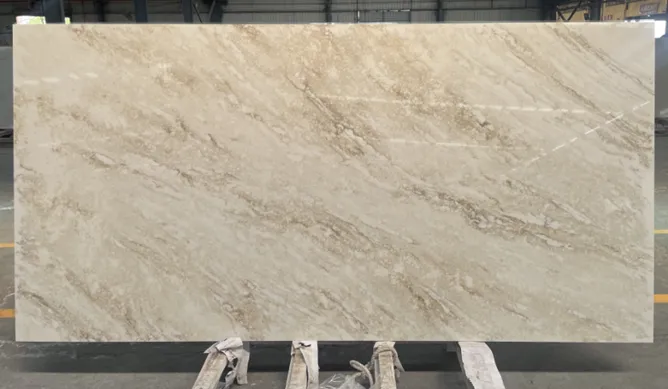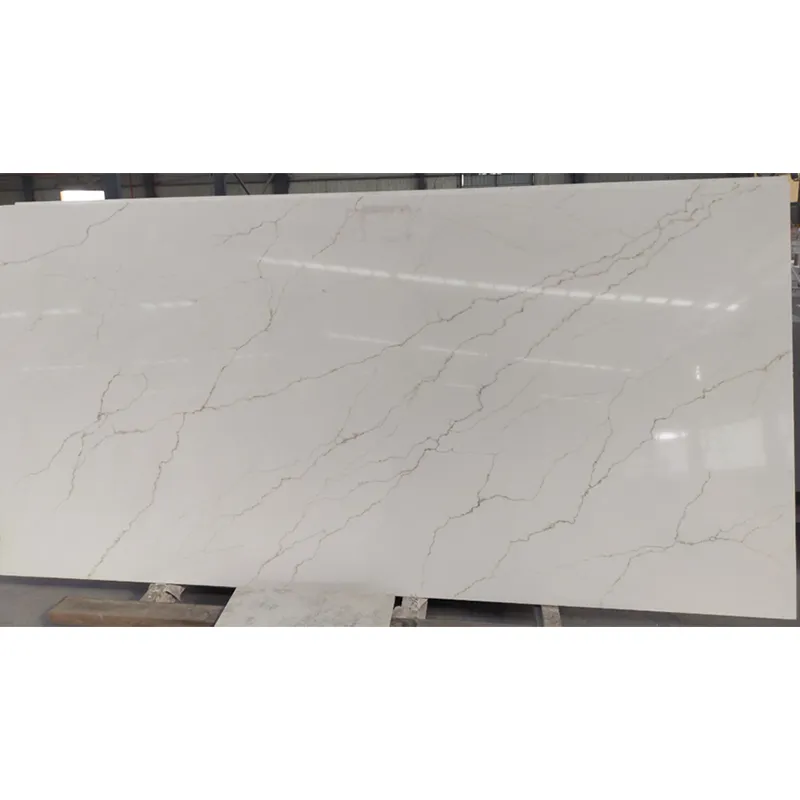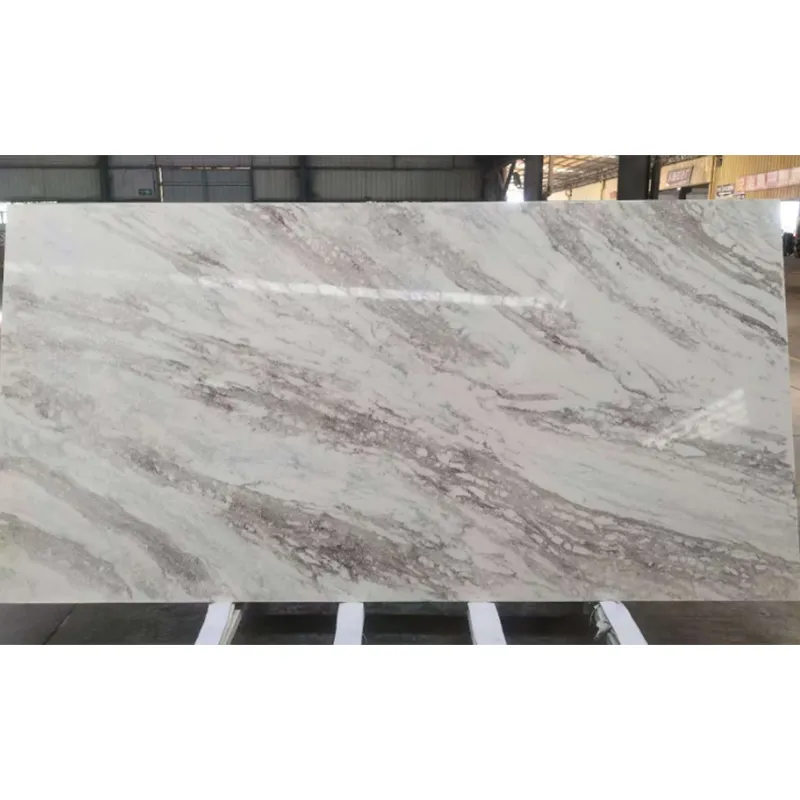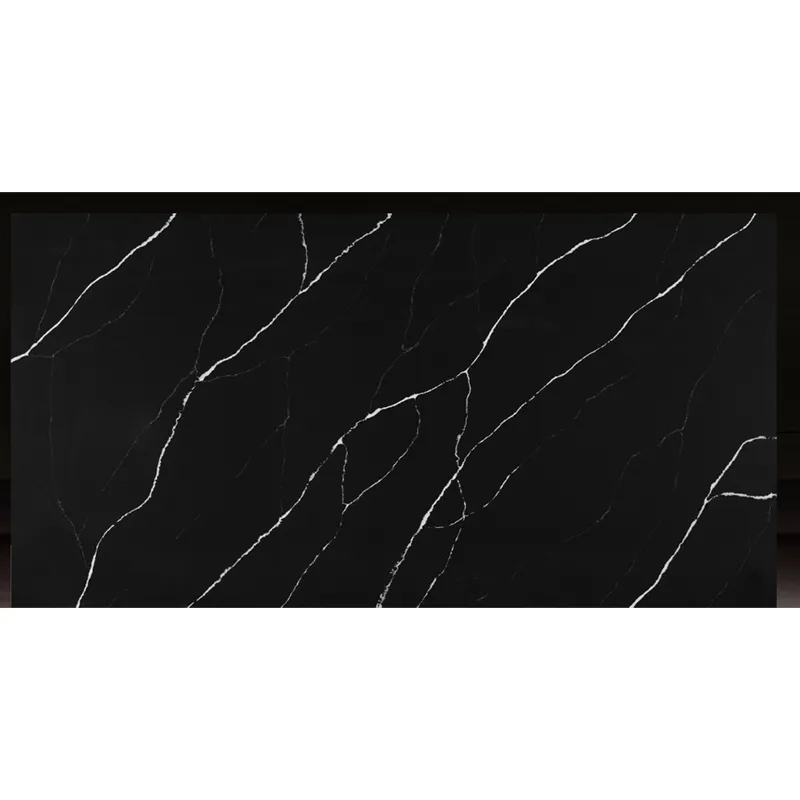Quartz stone countertop is widely used in kitchens, bathrooms and commercial places due to its high strength, low water absorption rate and beautiful and durable characteristics. In recent years, with the increasing demand for outdoor decoration, people have begun to explore the applicability of quartz stone countertop in outdoor environments, especially when exposed to UV rays. How is the UV resistance of quartz stone countertop? Is it suitable for outdoor use? This is a question worth further study.
This article will conduct a comprehensive analysis from the aspects of quartz stone material characteristics, the impact of ultraviolet rays on materials, quartz stone UV resistance and its applicability for outdoor use.

What are the material characteristics of quartz stone countertop?
Quartz stone countertop is a man-made stone, mainly made of about 93% natural quartz powder mixed with resin and colorant, and made under high pressure and high temperature. This special composite material structure gives quartz stone the following key characteristics:
1. High density and low porosity
The high-density structure of quartz stone countertop makes its water absorption rate extremely low, usually less than 0.02%. This property makes it highly resistant to stains and is not easily eroded by moisture or liquids.
2. Excellent hardness and scratch resistance
With a Mohs hardness of 7, quartz stone countertops are second only to diamond and corundum, making them extremely scratch-resistant.
3. Heat resistance
Quartz can withstand a certain degree of heat, but extreme heat sources (such as the bottom of a boiling pot placed directly on it) may cause surface damage.
4. Color variety
Due to the addition of artificial colorants, quartz can present a variety of colors and textures to meet different decorative needs.

What effect does UV have on quartz stone countertops?
In outdoor environments, solar radiation is an important factor that cannot be ignored, and ultraviolet (UV) is an important component. UV rays have high energy, and long-term exposure may have the following effects on many materials:
1. Material aging
UV rays can cause the chemical bonds within the material to break, causing fading, brittleness and structural degradation.
2. Surface cracking
UV exposure may cause some polymer surfaces to lose toughness and develop fine cracks.
3. Color change
Some materials will fade or turn yellow under the long-term effect of ultraviolet rays.
Therefore, evaluating the UV resistance of quartz stone when used outdoors is the key to determining whether it is suitable for outdoor scenes.

How is the UV resistance of quartz stone countertop?
As a man-made composite material, the UV resistance of quartz stone is closely related to the selection of raw materials and production process.
1. Characteristics of natural quartz
Natural quartz is a silicate mineral with high stability and is almost unaffected by ultraviolet radiation. However, quartz stone is not pure natural quartz, but a composite material.
2. The role of resin
The resin component in quartz stone accounts for about 7%. This resin is the binder of the composite material and determines the flexibility and weather resistance of the material. However, traditional resins are sensitive to ultraviolet rays and may age, yellow or even crack when exposed to sunlight for a long time.
3. Improvement of anti-UV formula
In order to improve the UV resistance of quartz stone, manufacturers usually add anti-UV stabilizers during the production process. These additives can absorb or reflect UV rays, reducing their damage to the material, thereby extending the service life of quartz.
4. Testing of UV resistance
The UV resistance of quartz is usually evaluated through accelerated aging experiments. This experiment simulates the cumulative effect of many years of sunlight exposure to test the physical and chemical stability of the material under long-term UV exposure.
The experimental results show that high-quality quartz can resist the effects of UV rays to a certain extent, which is reflected in lower fading rates and structural integrity. However, there are significant differences in the UV resistance of different brands and models of quartz.
Is quartz suitable for outdoor use?
Considering the material properties and UV resistance of quartz, whether it is suitable for outdoor use depends on the specific use environment and conditions.
1. Scenarios suitable for outdoor use
In some relatively sheltered outdoor places, such as balconies, semi-enclosed terraces or pavilions, quartz can be used as an ideal countertop material. Sunshade facilities can effectively reduce direct UV rays, thereby reducing the risk of quartz aging.
2. Limitations of high UV exposure environments
In environments that are fully exposed to sunlight, such as unshaded patios or open-air kitchens, quartz may not be the best choice. Although quartz with added UV stabilizers has a certain degree of UV resistance, long-term exposure may still cause color changes and resin aging.
3. The impact of temperature changes on quartz
In addition to UV rays, temperature changes in outdoor environments may also cause stress to quartz, especially under extreme temperature conditions. Although quartz has a certain degree of heat resistance, repeated thermal expansion and contraction may have an adverse effect on its long-term use.
4. Requirements for outdoor cleaning and maintenance
In outdoor environments, quartz surfaces are prone to accumulate dust, dirt and moisture, and need to be cleaned regularly to maintain their appearance and performance. In addition, a protective agent is recommended to further improve its weather resistance.

What are the advantages and disadvantages of quartz stone countertops?
Advantages of quartz stone countertops
● Excellent hardness and scratch resistance, suitable for heavy objects and daily use.
● A variety of colors and textures can enhance the beauty of outdoor decoration.
● Low water absorption, not easily affected by humid environment.
Disadvantages of quartz stone countertop
● The resin component is sensitive to UV rays, which may cause aging problems after long-term exposure.
● In extreme high temperature and temperature difference environments, structural stress problems may be faced.
How to choose the right quartz stone countertop?
● Choose quartz products with UV resistance: high-quality brand quartz is usually specially treated to better resist the effects of UV rays.
● Use in an environment with sunshade facilities: appropriate sunshade measures can significantly extend the service life of quartz in outdoor environments.
● Regular maintenance and protection: the use of professional protective agents or coatings can further improve the UV resistance of quartz.
At Foshan Rongguan, we redefine excellence in building materials, offering affordable quartz countertops, artificial stone, and customized terrazzo flooring. Our products are widely exported and come with factory-direct pricing. Secure a quote today to benefit from our latest promotions and bulk purchase discounts!

